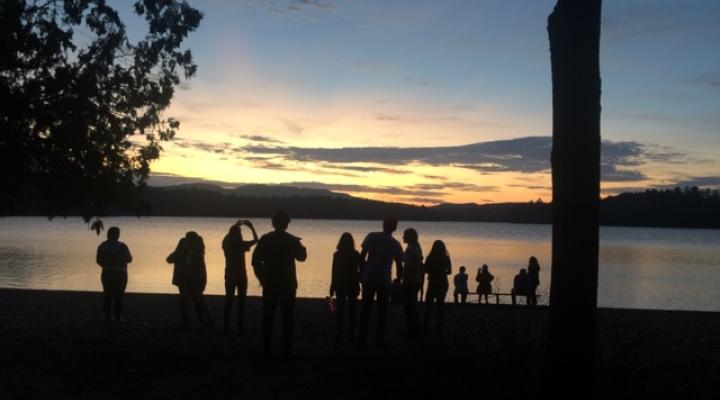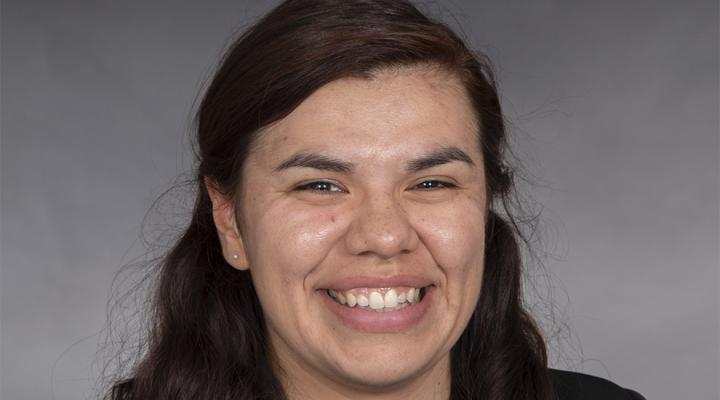EAS alum Lisa M.P. (Pinsker) Munoz ’00 will be on campus Monday, November 6 to present a public lecture based on her new book Women in Science Now: Stories and Strategies for Achieving Equity.
Lisa M.P. Munoz stays open to possibilities, and this has served her well through the years. When she was in high school in Atlanta, her AP Chemistry teacher, Barbara Broadway, ran an after-school water quality club. Munoz’s older sister had been in the club and Munoz herself liked the idea of being able to tromp around in streams, so she joined the club and learned how to take water samples that she then tested back at school. The group reported their results to the community.
“It was hands-on and practical and felt really helpful to the town,” Munoz said. It also opened the door to spending four weeks in Rostov-on-Don, Russia as part of a youth scientific exchange program. A Russian student stayed with Munoz and then Munoz stayed with that same Russian student’s family, testing water samples in both locations and comparing techniques and data. Munoz got to present findings to government agencies in Moscow and Washington, D.C.
“It was an incredible experience on so many levels,” Munoz said. “I was 15 years old and there I was traveling abroad and living with a family and doing actual science. It was really a transformative experience.”
As Munoz’s sister started exploring colleges, Munoz went along and on one visit found herself sitting in an engineering information session at Cornell. “They were saying things like ‘Do you like science?’ ‘Do you want to make a difference?’ and I was like ‘Yes! I do like science and I do want to make a difference!” Munoz’s sister enrolled at Cornell and then so did she, years later—(and her younger sister, too, several years after that--all supported by various scholarship programs.)
Without exactly knowing what engineers do, Munoz decided to major in engineering.
And it was hard. Munoz struggled. But she persisted because she knew she could find a path through if she stayed open to the possibilities. Sure enough, the possibility presented itself in the form of a new major being promoted by EAS Professor Bryan Isacks. The college offered the science of earth systems for the first time during Munoz’s years as an undergraduate and she jumped at the chance.
In that first semester as an SES major, on-air CNN meteorologist Valerie Voss spoke to her class and Munoz says it forever changed her path. “I went up to her right after, and I said ‘this was amazing. I'd love to learn more about this world. Can I intern with you this summer?’ And she said, ‘we've never had an intern in science or in meteorology, but I don't see why not. Here's my card,’ and we made it happen.”
That summer internships opened Munoz’s mind to the idea of science communications as a viable career and she began taking classes in the field as soon as she was back on campus.
Munoz heard another speaker that had a huge impact on her future in that same first semester as an SES major. Someone from the Sea Education Association spoke to her class about the organization and the opportunities they presented. Munoz liked what she heard and jumped at the chance to go to Woods Hole Oceanographic Institute for six weeks to study oceanography and nautical science and then to spend six weeks living and working on a tall ship where she was doing a research project and crewing a boat. “It was physically and emotionally grueling,” Munoz says now when recalling the experience, “but I learned so much and I feel like I draw upon those experiences still when I am interviewing scientists—especially if they do field work.”
Lately, Munoz has had many opportunities to interview scientists as she worked on her recently published book Women in Science Now: Stories and Strategies for Achieving Equity. Her 20-year professional path from graduating Cornell with a degree in Earth Systems Engineering to published author has involved several stops, but all of them have involved translating complex scientific ideas and processes into stories non-scientists can understand.
She has worked as managing editor for Geotimes magazine, a press officer for the World Meteorological Organization in Geneva, a public information officer for the Society for Personality and Social Psychology, the publicist and outreach producer for the Emmy-nominated film “Picture a Scientist”, and as the current public information officer for the Cognitive Neuroscience Society. Along the way she started her own company called SciComm Services, which she has been running successfully for 12 years.
When Munoz thinks about the path her career has taken, she says the thread that connects everything she has done has been curiosity. “I love opportunities where I can meet new people and learn new things,” Munoz said. “I don’t think of myself as someone who is going to skydive or bungee jump, but I definitely think of myself as intellectually adventurous and that has been the driving force in my career—in my life.”
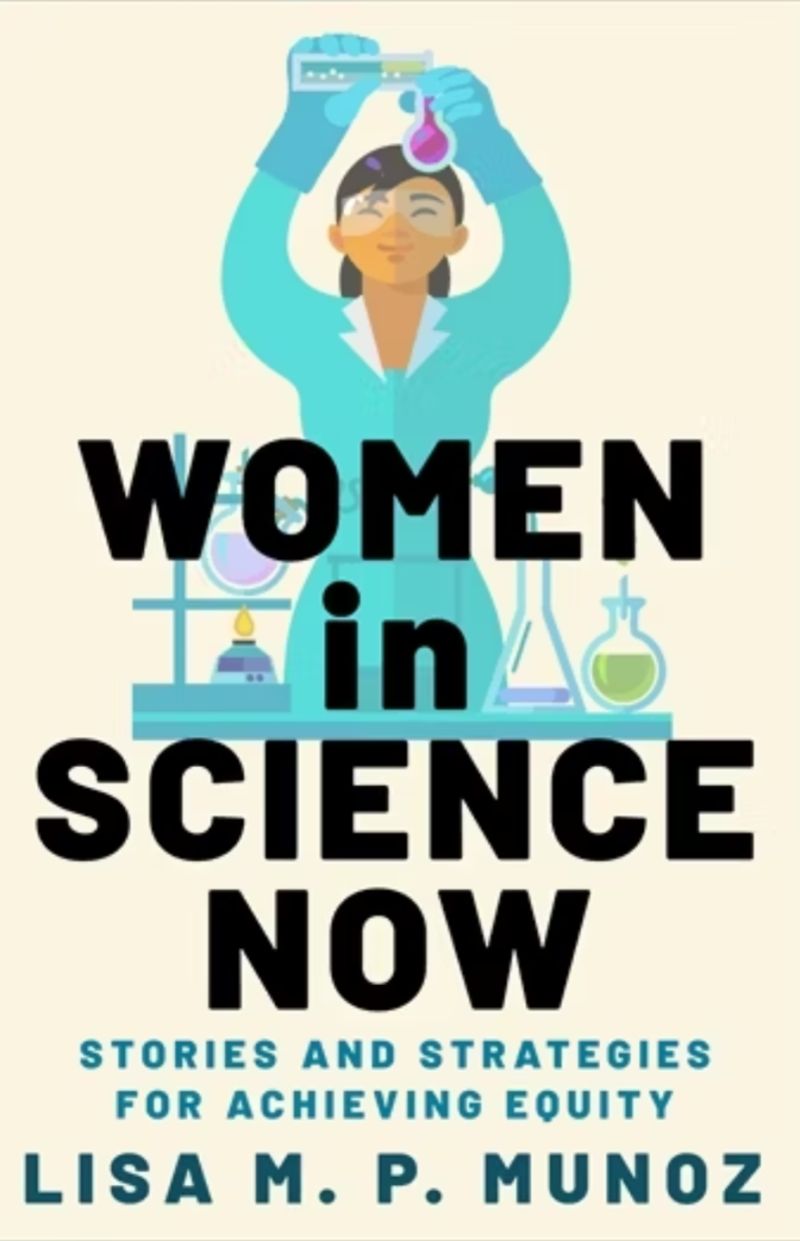 One result of this curiosity is the book Munoz is returning to Cornell to talk about. For Women in Science Now: Stories and Strategies for Achieving Equity, she interviewed many women working in science to hear about their experiences and challenges. But the book is not simply a collection of stories. In it, Munoz also delves into the data that highlights the size and scope of the obstacles women in particular face in their scientific careers and she looks at research-based solutions to these persistent problems.
One result of this curiosity is the book Munoz is returning to Cornell to talk about. For Women in Science Now: Stories and Strategies for Achieving Equity, she interviewed many women working in science to hear about their experiences and challenges. But the book is not simply a collection of stories. In it, Munoz also delves into the data that highlights the size and scope of the obstacles women in particular face in their scientific careers and she looks at research-based solutions to these persistent problems.
The Library Journal says of Women in Science Now: Stories and Strategies for Achieving Equity, “This book is essential reading for faculty, administrators, potential students, and the entire scientific community. The focus is on higher education, but the book also looks at multiple research studies and proven interventions in science programming for younger students.”
You can hear Munoz talk about her book and about some of the opportunities she took advantage of on Monday, November 6 at 3:30 in Statler Hall. The lecture includes a Q&A and will be followed by a dessert reception. You can register for the event here.
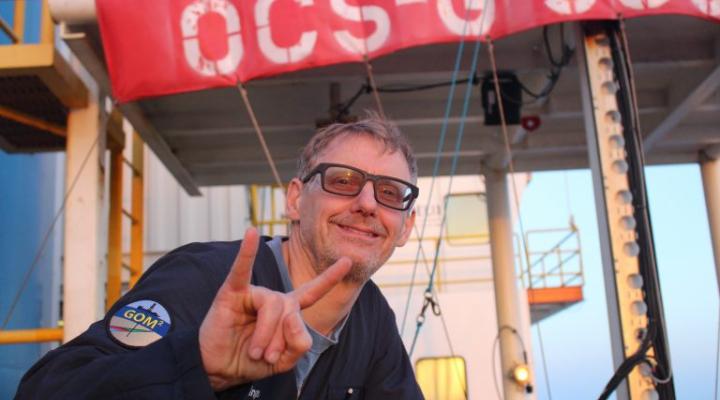


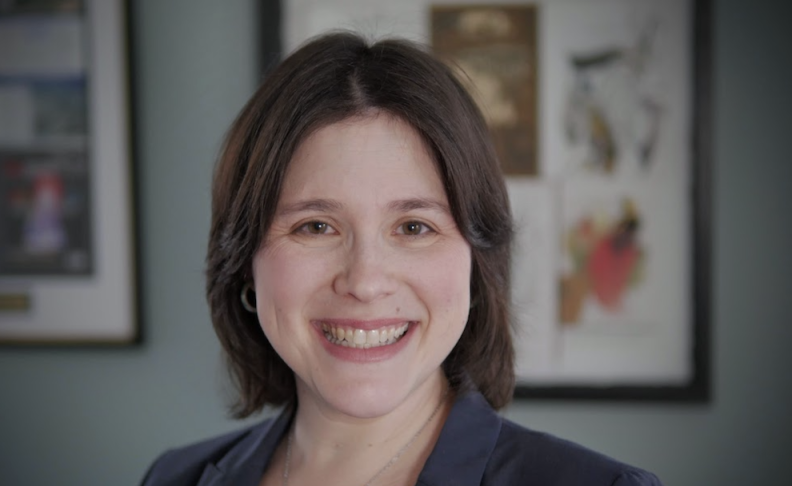
 One result of this curiosity is the book Munoz is returning to Cornell to talk about. For
One result of this curiosity is the book Munoz is returning to Cornell to talk about. For 